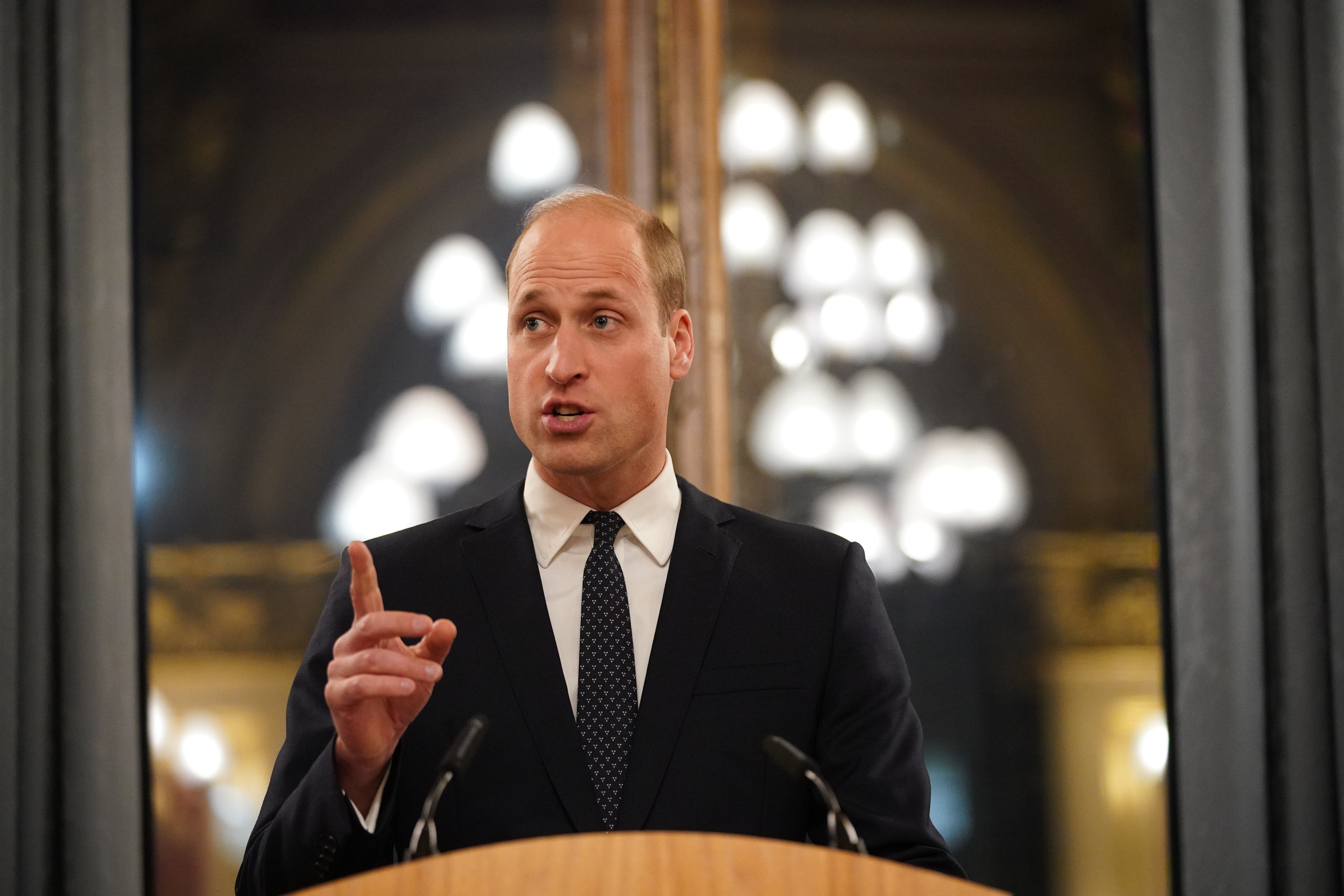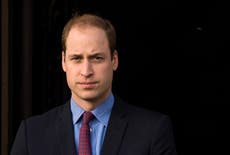British territories ‘on the front line’ of climate crisis, says Prince William
British overseas territories that are small islands are particularly vulnerable to climate change

Your support helps us to tell the story
From reproductive rights to climate change to Big Tech, The Independent is on the ground when the story is developing. Whether it's investigating the financials of Elon Musk's pro-Trump PAC or producing our latest documentary, 'The A Word', which shines a light on the American women fighting for reproductive rights, we know how important it is to parse out the facts from the messaging.
At such a critical moment in US history, we need reporters on the ground. Your donation allows us to keep sending journalists to speak to both sides of the story.
The Independent is trusted by Americans across the entire political spectrum. And unlike many other quality news outlets, we choose not to lock Americans out of our reporting and analysis with paywalls. We believe quality journalism should be available to everyone, paid for by those who can afford it.
Your support makes all the difference.The Duke of Cambridge has told British Overseas Territories they are “on the front line” of climate change.
Prince William called for pressure to be kept up on world leaders to combat climate change as he addressed delegates gathered at the Foreign Office in London.
William, 39, addressing representatives from 14 territories, said: “You are all on the front line.
“Your contributions to global emissions are negligible, and yet you face the dire consequences of rising sea levels, changing weather patterns and the destruction of coral reefs.
“Climate change is threatening the very survival of the territories, your ways of life, and the future of all your people.”
The meeting was the first in-person meeting for three years of the Joint Ministerial Council, which brings together UK ministers and the leaders of the Overseas Territories (OTs), which are in some of the remotest places on Earth.
Nearly all of the territories are vulnerable in one way or another to rising sea levels and face loss of habitat and increasing natural disasters from climate change and invasive species such as rats.
The future king said he was pleased that the territories had voiced their concerns for their future at the Cop26 UN climate change conference in Glasgow earlier this month.
They are Anguilla, Bermuda, the British Antarctic Territory, British Indian Ocean Territory, and the Cayman Islands, to the Sovereign Base Areas of Akrotiri and Dhekelia in Cyprus, the Falkland Islands, Gibraltar, Montserrat, Pitcairn Islands, St Helena, Ascension and Tristan da Cuhna, South Georgia and the South Sandwich Islands, Turks and Caicos Islands, and the British Virgin Islands.
William added: “I am pleased the Overseas Territories were represented at Cop26 and you were able to voice not only your concerns, but also your efforts to tackle the immense problems that you face.
“But we need to keep the pressure up if we are to drive down emissions and support those on the front line of climate change. We need to keep telling your story.”
The duke praised initiatives across the territories to combat the worst effects of climate change.
He said: “The challenges you face because of climate change may seem overwhelming.
“But I believe that with urgency and optimism, comes action. And humans have an extraordinary ability to make the impossible, possible.”
Land loss and migration are predicted in some territories such as the Pitcairn Islands.
Natural disasters are predicted to become more frequent and longer, including drought in the Mediterranean and storms in the Caribbean, where two hurricanes caused £3.2 billion damage in the Turks and Caicos Islands, Anguilla, and British Virgin Islands in 2017.
The 14 OTs contain around 94 per cent of all the unique species that the UK is responsible for and have marine areas that extend over 2% of the world’s ocean surface.
They contain around 3,300 species that occur nowhere else and there are potentially another 1,800 to 2,100 species that remain undiscovered there, scientists estimate.
PA





Join our commenting forum
Join thought-provoking conversations, follow other Independent readers and see their replies
Comments